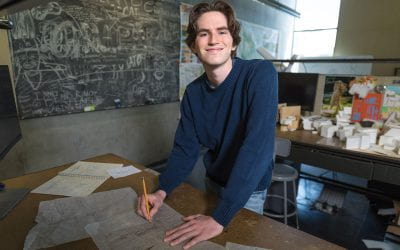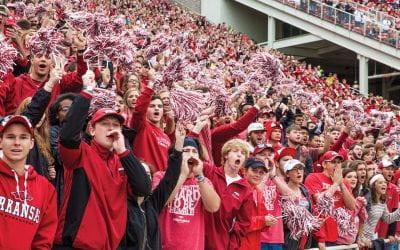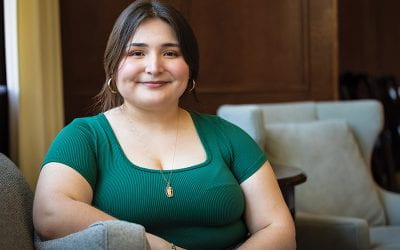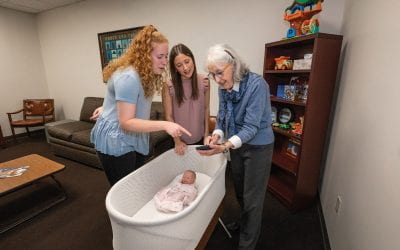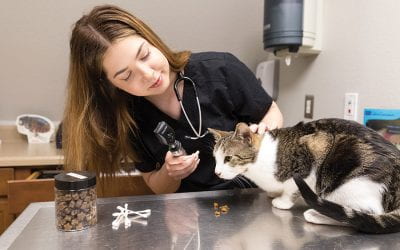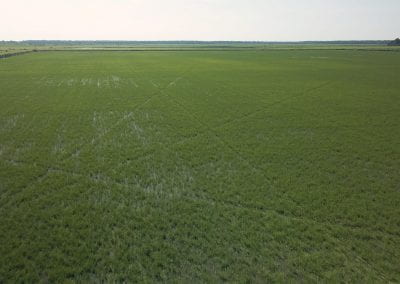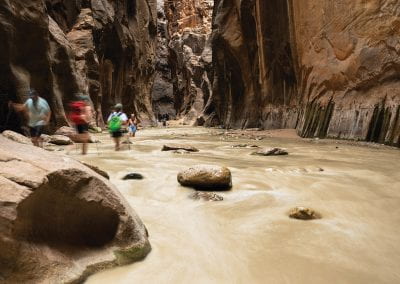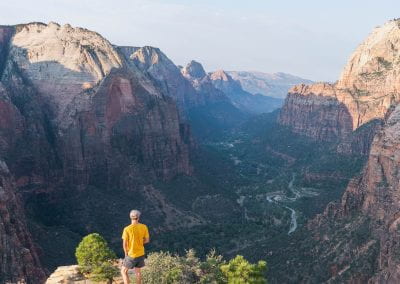
By Hiba Tahir
Photos by Dawson Oakley
A 2022 report from the Intergovernmental Panel on Climate Change found that just two degrees Fahrenheit of warming has already caused “widespread disruption in every region in the world.” From raging fires in the Amazon rainforest to more intense hurricanes in the Atlantic Ocean, it’s clear that climate change threatens human wellbeing and the future of the planet. Some choose to ignore mounting evidence, but misinformation and lack of awareness have also played a role.
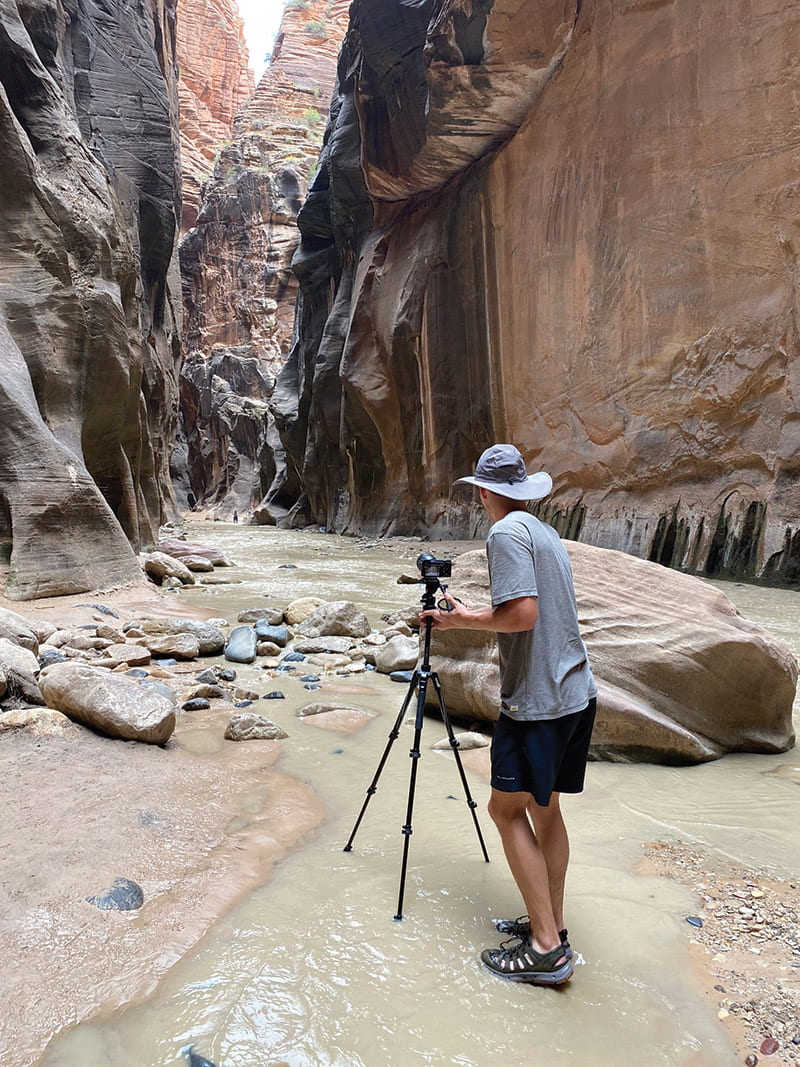
Enter Dawson Oakley, a biological engineering senior, Honors College Fellow and hobbyist videographer with a passion for the outdoors and sustainability. Watching in alarm as the impact of climate change became “more and more intense by the day,” Oakley decided to merge his interests by developing a video that raises awareness about climate change issues and showcases how engineering is being used to mitigate them.
“A lot of people aren’t aware of climate change issues and how you can actually try to solve them,” Oakley explained. “The way that our culture is headed today, more and more people are getting their information from online media. Videos are a great way to change people’s perspectives on issues.”
Oakley — who started filming amateur videos in the 10th grade and has since graduated to more research-focused videos for the UA System Division of Agriculture — set to work creating a video with two focal points. The first showcases how engineering can be used to help reduce greenhouse gas emissions, which many people believe is the main cause of climate change. He centered on the research of Benjamin Runkle, assistant professor of biological and agricultural engineering. Runkle’s work on rice irrigation practices has helped quantify a water-saving technique that saves rice farmers money and cuts emissions of the particularly potent greenhouse gas methane by 64% without impacting yield. He is leading an Honors College Forum, Nature-based Climate Solutions, this fall.
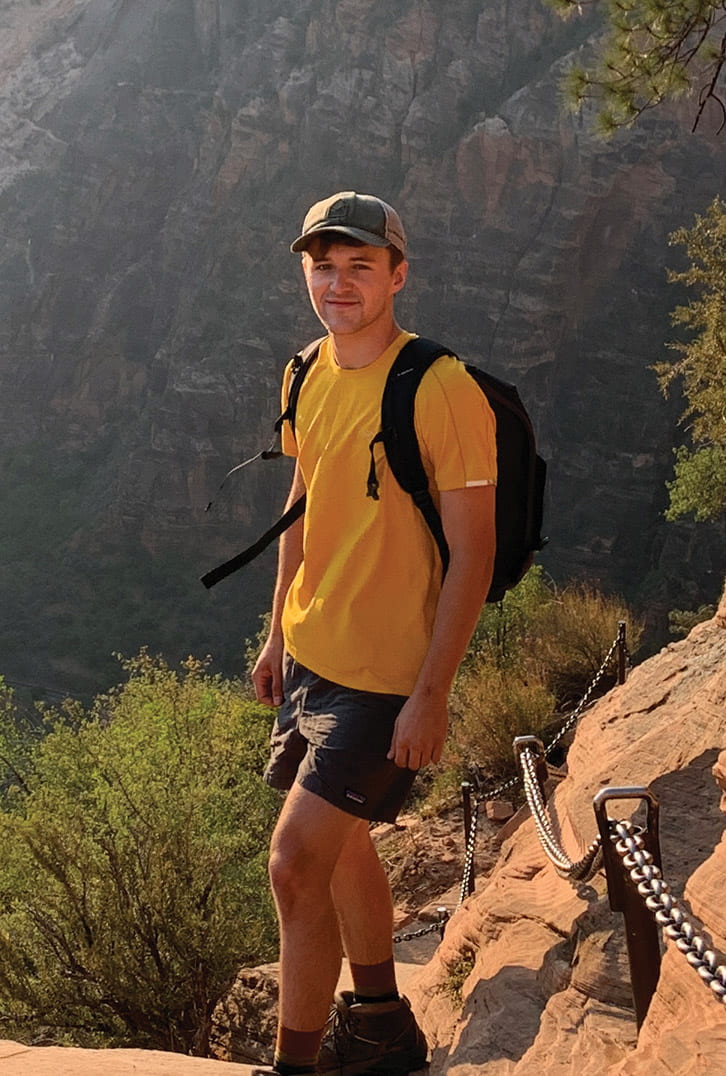
Dawson Oakley, a biological engineering senior, Honors College Fellow and hobbyist videographer with a passion for the outdoors and sustainability
The second half of the video shows how engineers are dealing with a major climate-change impact in the western United States: water scarcity. Oakley collaborated with honors alumnus Zack Wofford (B.S.B.E., magna cum laude, ’19), who is working to prevent water loss from the Great Salt Lake, which has been shrinking rapidly in recent years.
During his junior year, Oakley met Wofford when both visited with incoming freshmen. Wofford spoke about his job at the Weaver Basin Water Conservancy District in Salt Lake City, and Oakley remembers that “you could just tell how much he loved his job, and how much he was interested in what he was doing. As someone who’s still in school as a biological engineering major, that’s exactly what I wanted to see: someone with a passion for their job. That’s something I want someday, too.”
He reached out to Wofford over LinkedIn and quickly scheduled an on-site interview in Salt Lake City, a feat he says wouldn’t have been possible without his Honors College research grant.
“So I’m very grateful for that,” he said. “Being with Zack in Salt Lake City, and actually spending time with someone who lives there, and really seeing the impacts on his home, was very eye-opening to me because he was very passionate about the issues that he was talking about in the video.”
Oakley recalled a moment during the shoot when it began raining. Wofford expressed “genuine excitement,” and passersby emerged from cars to look up and feel the rain. He used the moment to end the video on a hopeful note.
Oakley’s video, which he completed in mid-April, has been two years in the making. It features beautiful aerial shots from his drone that highlight some of the causes and impacts of climate change, which has continued to worsen in that time, with more frequent severe weather events taking place around the world — including in the western United States, where wildfires have become a major concern thanks to increasingly dry conditions. Oakley witnessed the beginning of a wildfire himself as he was filming outside Salt Lake City.
“It’s just crazy to see how much more frequent all of these events are becoming and how it’s becoming more of the norm now,” he said. “I want people to know that it is real, and that we have a very small window of time to make a change to where things won’t get catastrophic.”
Oakley said that it’s easy for many to feel hopeless in the face of such insurmountable issues — but he does still have hope.
“Just be an advocate for sustainability,” he urged. “If we can change public perspective, we can change legislation. That’s how we can make a difference in our world that can turn things around.”
Oakley’s research was supported by an Honors College Research Grant.
More Field Notes
Daylighting Hot Springs
When Zane Colvin moved from rural Wynne to bustling Hot Springs, he was wowed by the urban energy of his new home, but curious about the hot springs — where were they? Check out his bold proposal for Arkansas’ top tourist attraction.
Brand Fans
For her honors thesis, Madeline Braun explored how the Kansas City Chiefs and the Razorbacks cultivate identity loyalty within their own brands. To find the secret sauce, she distributed a survey asking both Chiefs and Razorbacks devotees to answer questions about their sense of pride and loyalty in their team.
Colorblind Quadrilles? A Closer Look at Bridgerton
For her honors thesis, senior political science major Daniella Ruiz Cantú knew that she wanted to combine her studies in both sociology and political science with her interest in film. She was confused why, despite numerous successful films featuring people of color front and center — like Coco and Crazy Rich Asians — she continued to encounter racism in the news and in person. After taking Lisa Corrigan’s honors colloquium in communications, she learned of one possible explanation: the reinforcement of the white gaze in media.
Up All Night? Enter A.I.
Gabrielle Krupa, a senior communications sciences and disorders major, and Sutton Bauman, a senior communications sciences and disorders major with a background in human development, set out to explore how new technologies impact how parents bond with their newborn children.
Pandemic Pet Care
Animal science majors Kayla DeSmet and Sabrina Cox labored in the trenches throughout the pandemic — DeSmet working at a hospital for small and exotic animals in Fayetteville, while Cox learned the ropes at a Tontitown clinic that cares for pets and livestock. For their honors thesis research, they decided to document COVID-19’s day-to-day and long-term impacts on the companion animal industry from 2020 to 2021.


